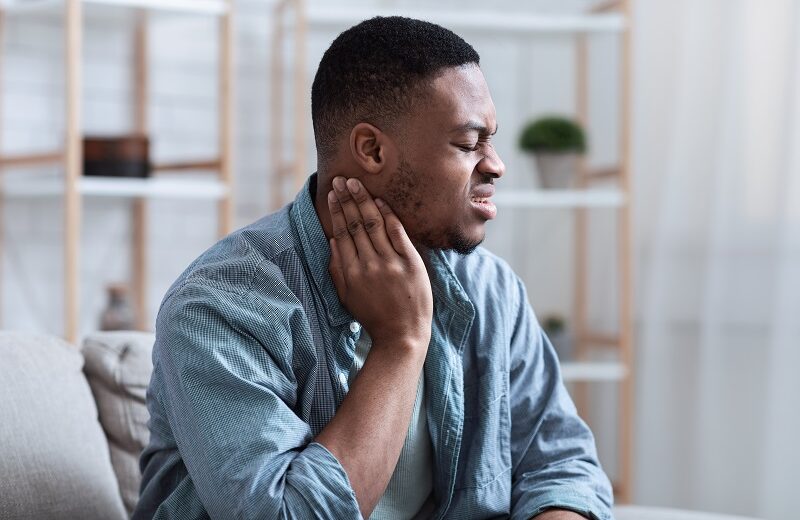A swollen ear canal, clinically known as otitis externa or swimmer’s ear, arises when the narrow passageway between the outer ear and the eardrum experiences inflammation due to infection, allergies, or irritation. This can lead to the accumulation of moisture and debris, perpetuating a cycle of inflammatory response that necessitates appropriate treatment for effective resolution.
The Common Causes of a Swollen Ear Canal
A variety of factors may induce inflammation in the ear canal, and each factor necessitates a specific strategy for treatment and prevention.
Fungal and Bacterial Infections
The most prevalent condition, commonly referred to as “swimmer’s ear,” occurs when moisture becomes trapped within the ear canal. This situation fosters an optimal environment for the proliferation of harmful bacteria or fungi, leading to inflammation.
Excessive Moisture
Activities such as swimming, showering, or humid climates can result in the entrapment of water within the ear canal. This condition softens the skin and increases its vulnerability to infections and swelling.
Irritation
Inserting foreign objects, employing aggressive cleaning techniques with cotton swabs, or scratching the ear canal can compromise the delicate epithelial lining, potentially leading to an inflammatory response.
Allergies
Hair products, earrings, hearing aids, and topical medications may cause contact dermatitis, which may result in swelling and irritation of the ear canal.
Skin Ailments
Eczema, psoriasis, and seborrheic dermatitis may involve the ear canal, similar to their impact on other regions of the body. These ailments can lead to chronic inflammation and swelling of the ear canal, typically occurring without any accompanying infection.
Earwax Build-Up
Excessive accumulation of earwax can obstruct the ear canal, resulting in increased pressure and inflammation, which can exacerbate bacterial growth.
Other Factors
Certain patients possess naturally narrow ear canals or exhibit structural abnormalities that increase their vulnerability to moisture retention and resultant swelling.
Treating a Swollen Ear Canal
The methodology for treatment is largely contingent upon the underlying cause of the condition. Chronic or recurrent episodes suggest the necessity for a professional evaluation to ascertain any anatomical issues, persistent infections, or underlying health conditions that may require specialized intervention.
Keep Your Ears Dry
Maintaining proper ear hygiene is essential for managing a swollen ear canal, as excess moisture can encourage bacterial and fungal growth. After showering or swimming, tilt your head to drain trapped water and gently dry the outer ear with a soft towel. Avoid using swabs in the ear canal, as they can push debris further and irritate tissue. Allow earwax to clear naturally to carry debris away. If cleaning is necessary, use a washcloth wrapped around a finger to wipe the outer ear gently.
Use a Warm Compress
Heat therapy effectively reduces inflammation and alleviates discomfort in a swollen ear canal. Make a warm compress by soaking a clean washcloth in warm water and wringing out the excess moisture. Apply the cloth to the affected ear for 10 to 15 minutes. This gentle heat increases blood circulation, which helps reduce swelling and promotes healing by attracting immune cells to fight infection.
Over-The-Counter Remedies
Anti-inflammatory medications such as naproxen or ibuprofen are effective for reducing ear canal swelling, as they alleviate both pain and inflammation simultaneously. These products inhibit the production of prostaglandins, which are responsible for causing pain and inflammation.
Anti-Inflammatory Ear Drops
Specialized ear drops formulated for a swollen ear canal provide targeted relief by administering anti-inflammatory components directly to the affected site. Over-the-counter alternatives containing hydrocortisone are effective in reducing inflammation, while those incorporating drying agents such as isopropyl alcohol assist in eliminating excess moisture that contributes to swelling.
Avoid Irritation
To promote healing and prevent further trauma to an inflamed ear canal, individuals should avoid swimming pools, hot tubs, and ensure that water does not enter the ears during showers by using earplugs or petroleum jelly-coated cotton balls. It is advisable to refrain from using hearing aids, earbuds, or headphones until swelling subsides, as these can trap moisture and bacteria. Additionally, caution should be exercised with hair products, perfumes, or cleaning agents that may enter the ear canal and trigger allergic reactions.
Consult with an ENT Specialist
If home remedies do not relieve symptoms within 2 to 3 days, or if severe symptoms arise, it is advisable to seek professional medical assistance for a thorough evaluation. ENT disorders can be complex; for example, what seems to be simple ear canal swelling may indicate eustachian tube dysfunction or chronic sinusitis, among other related issues. Numerous ENT specialist teams offer advanced diagnostic tools and therapeutic interventions, including innovative procedures such as eustachian tube balloon dilation.





